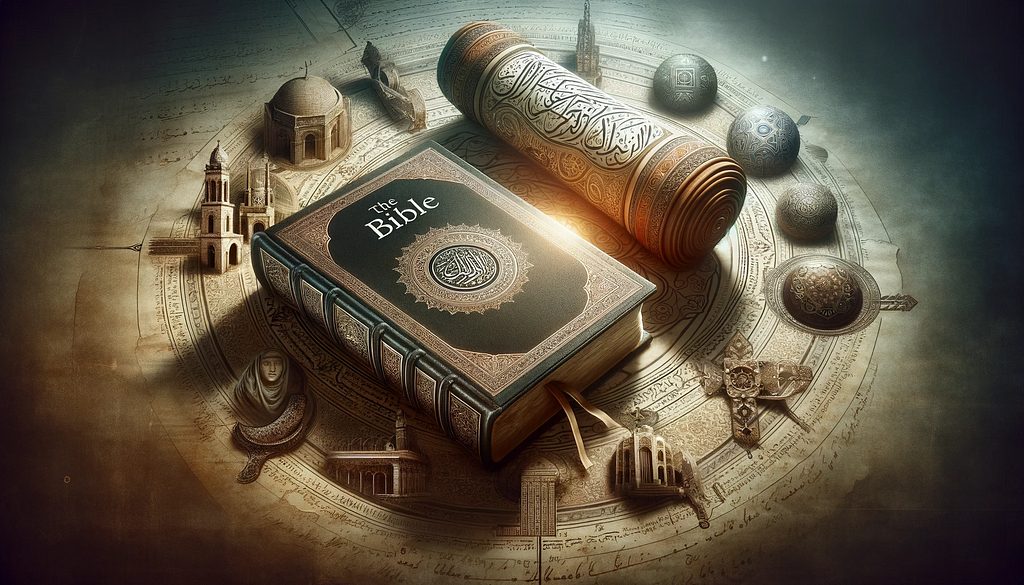
The Bible and the Quran are two of the most influential religious texts in human history. Both have played a crucial role in shaping the beliefs, cultures, and histories of billions of people over centuries. This article explores the historical evolution of these sacred texts, delving into their origins, development, and the impact they have had on societies and individuals.
Origins of the Bible
Hebrew Scriptures: The Old Testament
The Bible’s first part, the Old Testament, is a collection of religious writings by the ancient Israelites. It includes the Torah (the five books of Moses), historical accounts, poetry, and prophetic writings. These texts were initially passed down orally and later written in Hebrew, with some parts in Aramaic. The process of compiling these texts spanned centuries, beginning around the 12th century BCE.
The New Testament
The New Testament, central to Christian belief, comprises writings about the life and teachings of Jesus Christ and letters by early Christian leaders like Paul. These texts were written in Greek between the 1st and 2nd centuries CE. The New Testament canon was formalized in the 4th century CE.
Development of the Quran
Revelation to Compilation
The Quran, believed by Muslims to be the word of God as revealed to Prophet Muhammad, was initially transmitted orally. The revelations began in 610 CE and continued until Muhammad’s death in 632 CE. The Quran was compiled into a single book in its current form under the third Caliph, Uthman ibn Affan, around 650 CE, to preserve its originality and uniformity.
Preservation and Translation
Unlike the Bible, the Quran has been remarkably preserved in its original language, Arabic. The text’s consistency over time is a point of pride in Islamic tradition. Translations exist but are considered interpretations of the Quran’s meaning, not the Quran itself.
Impact on Societies
The Bible: Shaping Western Civilization
The Bible has profoundly influenced Western civilization. Its teachings have shaped laws, ethics, and social norms. For example, the concept of a Sabbath day of rest originates from the Bible. The Reformation, a major 16th-century European movement, led to the translation of the Bible into vernacular languages, significantly impacting literacy and education.
The Quran: Foundation of Islamic Culture
The Quran is the cornerstone of Islamic faith and law. It has deeply influenced Muslim societies in areas like jurisprudence, politics, and personal conduct. The Quran’s emphasis on charity and community welfare has inspired numerous social and charitable practices in Islamic cultures.
The Bible and the Quran, each with their unique historical evolution, have left an indelible mark on human history and culture. Their influence extends beyond religious boundaries, impacting laws, languages, art, and societal norms. Understanding the historical development of these texts offers insight into the foundations of much of the world’s religious and ethical thought, highlighting their enduring significance in a global context.
The Historical Evolution of the Bible and Quran was originally published in SacredSagasStudio on Medium, where people are continuing the conversation by highlighting and responding to this story.